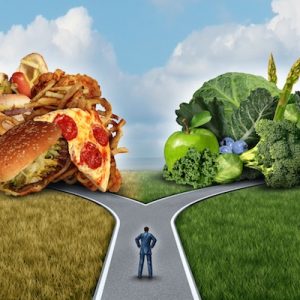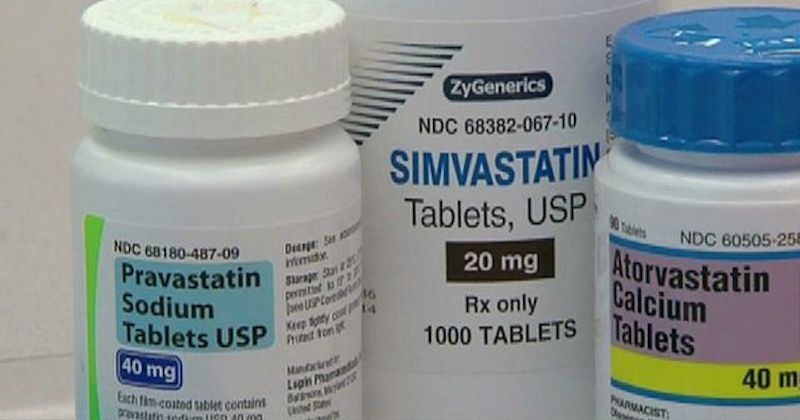Cholesterol Myths Debunked, And A Miracle Nutrient That Works Better They Don't Tell You About
Last updated on
I cringe when I hear someone says they’re avoiding eggs or seafood (or any natural foods for that matter) for fear of “high cholesterol”. People are taking drugs to lower their cholesterol, not really understanding what is cholesterol, why drugs don’t help (and may even be harmful!).
What Is Cholesterol?
Cholesterol is a soft waxy fat-soluble substance that your body produce sufficiently as foundational “building materials” and is absolutely essential for health.
For example, your liver needs sufficient amount of cholesterol to make bile acid for digestive processes to take place. When lacking cholesterol, your digestive system can be adversely affected.
In the brain, cholesterol is critical for connecting your neurons to transmit messages. It allows you to think, learn new things and form memories. Studies have found that low levels of cholesterol can actually contribute to strokes, and in cases of cholesterol deficiency, it may even cause depression, suicidal thoughts and violent behavior!
There are several types of cholesterol, some we label as “good” and some as “bad”.
- High-density lipoprotein (HDL)—which we label as “good”—helps remove cholesterol from blood vessel walls and the blood, carrying them to the liver for processing and elimination.
- Low-density lipoprotein (LDL)—which we label as “bad”—carries cholesterol into the bloodstream and promotes buildup of cholesterol plaque on the arterial walls.
These are really, “normal” cholesterols going around carrying out their “normal” functions and we need them all. But, what’s “not normal” is when these cholesterols get oxidized from the oxidative stress that occurs in the body due to our poor lifestyle and dietary choices.
Elevated cholesterol is oxidized cholesterol caused by free radicals such as from processed foods, fried foods, artificial food additives, environmental pollutants, drugs, and stress.
A poor diet that is low in fiber, high in hydrogenated oils (transfats), animal meat products, sugar, salt, alcohol, all contribute to the elevation of cholesterol that is oxidized. Oxidized and inflamed cholesterol is what you need to worry about, and what you need to work on to reduce.
Cholesterol And Statin, And Why Similar Drugs Won’t Work
Tens of millions of the American population are prescribed statins—cholesterol-lowering drugs. Statins work by blocking a specific enzyme in your liver from producing cholesterol. That enzyme, does much more in the body than just make cholesterol. So you can imagine, when this enzyme is suppressed, it is interfering with your many other biological functions in your body.
Taking statin drugs have been reported to cause various health problems :
- Nutrient deficiencies
- Cause type 2 diabetes
- Muscle and nerve damage
- Immune depression
- Pancreas or liver dysfunction
- Acidosis
- Anemia
- Sexual dysfunction
- Elevated liver enzymes
- Memory loss leading to Alzheimer’s Disease
- Retard fetal development in pregnant women
How To Optimize Your Cholesterol Levels

These are already covered in this article so I will not be going through them again here. The recommendations on that page are still valid.
In many cases, when one stops taking statin or similar cholesterol-lowering drugs, and make these simple diet and lifestyle changes, they will likely see an improvement to their cholesterol levels.
If you need a little help, a new research has shown that there is a natural cholesterol-lowering nutrient that not only works effectively for this condition, it is even necessary, and this gets really interesting. Read on …
The Magnesium Miracle
When you use magnesium as your first line of treatment for elevated cholesterol, you don’t have to touch statin drugs at all!
From page 90 of “The Magnesium Miracle” by Dr Carolyn Dean, she explained this …
Every metabolic activity in the body depends on enzymes. Making cholesterol, for example, requires a specific enzyme called HMG-CoA reductase. As it turns out, magnesium slows down this enzymatic reaction when it is present in sufficient quantities.
HMG-CoA reductase is the same enzyme that statin drugs target and inhibit. The mechanisms are nearly the same; however, magnesium is the natural way that the body has evolved to control cholesterol when it reaches a certain level, whereas statin drugs are used to destroy the whole process.
This means that, if sufficient magnesium is present in the body, cholesterol will be limited to its necessary functions—the production of hormones and the maintenance of membranes—and will not be produced in excess.
The magnesium-cholesterol story gets even better. Magnesium is responsible for several other lipid-altering functions that are not even shared by statin drugs. Magnesium is necessary for the activity of an enzyme that lowers LDL, the “bad” cholesterol; it also lowers triglycerides and raises the “good” cholesterol, HDL.
Another magnesium-dependent enzyme converts omega-3 and omega-6 essential fatty acids into prostaglandins, which are necessary for heart and overall health.
As each individual is different, your magnesium requirement may be different from another. If you’re serious about getting off statins and have better health, get a copy of this book to understand the type of magnesium you should take, and the dosage that is right for you.
Some of the links I post on this site are affiliate links. If you go through them to make a purchase, I will earn a small commission (at no additional cost to you). However, note that I’m recommending these products because of their quality and that I have good experience using them, not because of the commission to be made.
Comments
Leave a Reply


































 JOIN OVER
JOIN OVER
Thanks for the info re magnesium. I’ll check it out. It is frustrating, however, that I’ve never read one article about lowering cholesterol that doesn’t blame the reader. No one ever speaks to those of us with familial hypercholosterolemia. My first test was when I was in my 20’s. I weighed 100 pounds and it was 200 despite my not eating meat and walking a minimum of 2 miles every day. I’m still a walking textbook regarding how to keep cholesterol low and it just keeps going higher. It’s beyond frustrating because I’m not about to take statins.
It’s nice to know more about these things cause I Never know that medicines prescribe to me by my doctor has many side effects especially I have diabetes for years and was stroke with seizure once, these information is educational and many who can read this will be aware of the medicines thay are taking